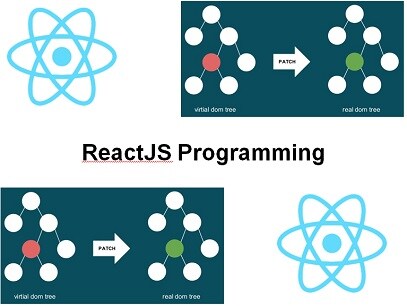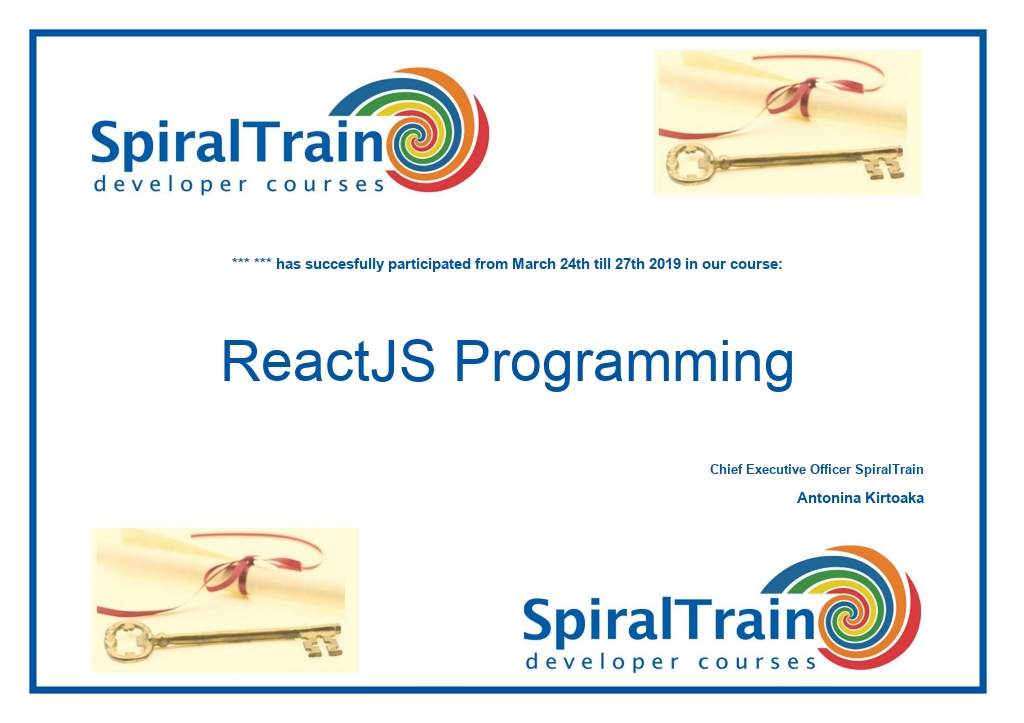-
Learning by doing
-
Trainers with practical experience
-
Classroom training
-
Detailed course material
-
Clear content description
-
Tailormade content possible
-
Training that proceeds
-
Small groups
In the course React Fundamentals you will learn to use the open source ReactJS JavaScript library for the development of modern Single Page Applications. React is ideally suited for building User Interface components. React is lightning fast because changes are made to the Virtual DOM after which the browser's DOM gets an update by comparison. The most recent version of React is used in the course.
React has a programming model where child component do not influence parent components in an update, providing a clean separation of components in a single-page application.
After introducing the main characteristics of React such as the Virtual DOM, JSX, component renderers and callback functions, it is discussed how to create a first React app with the right combination of developer tooling like React, Webpack and Babel.
React uses the functional programming style whose main characteristics in JavaScript are highlighted. Next attention is paid to React Views that put a nested component tree with HTML custom tags on the screen. The creation of components with the JavaScript extension JSX is discussed as well.
Also Forms, Validation and Routing in React Applications are on the course schedule.
Finally the use of the Redux Framework that is often used in combination with React is discussed.
Developers who want to learn how to program with the ReactJS JavaScript library for building modern state of the art web applications.
Experience with programming in a modern programming language is required. Knowledge and experience with JavaScript is beneficial for a good understanding.
The theory is treated on the basis of presentation slides. The concepts are illustrated with demos. The theory is interspersed with exercises. The course times are from 9.30 to 16.30.
The participants receive an official certificate React Fundamentals after successful completion of the course.

Module 1 : React Intro |
Module 2 : Components |
Module 3 : Composition and LifeCycle |
|
What is React? React Features Benefits of React JSX Virtual DOM Webpack Module Builder Webpack Features Webpack.config ES6 Features Babel Benefits of Redux React Scripts |
React Components JSX Component React and JSX JSX versus JavaScript Single Root JSX XSS Protection Props Collection Props in Variables propTypes List of Props Types Default Props Rendering State |
Composing Components Refs and DOM Components with Behavior Pass State Update Accessing Child Components Mounting and Unmounting Components Lifecycle Updating Events Dynamic Tables ReadOnly and ReadWrite Higher Order Components Hooks |
Module 4 : Forms and Validation |
Module 5 : React Routing |
Module 6 : Redux Framework |
|
ReadOnly ReadWrite Forms in React Controlled Components Uncontrolled Components Textarea Tag Select Tag Field Level Validation Form Level Validation Submit Handlers |
Defining Routes Default Route Not Found Route Nesting and Params Multiple Params Redirects Include External Routes Running the Router Using Universal Rendering Access Router Methods |
React with Redux Three Principles Redux Flow Connecting to React Store Actions Reducer Data Flow Unidirectional Async Flow |
